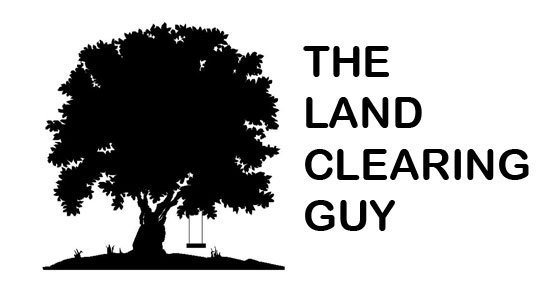We provide a free consultation to each land owner. During this consultation we discuss the best forestry methods and land stewardship methods to employ in improving, and managing your land. Or forestry mulching service is a giant leap forward for land stewardship in Middle Tennessee. The Tennessee Department of Forestry says "Well managed private forests protect water quality and wildlife habitat while providing a high quality, renewable timber supply." Our personal knowledge and educational background are useful for managing land,and private forests. We were raised planting and caring for trees, and land. Each of us can identify, and are familiar with all of the native species of trees in Middle Tennessee. We have spent extensive time in the wilderness since childhood. Luke Nemeth went on to get a Bachelors Degree in Natural Resources from The University of The South, Sewanee. He is the primary equipment operator. Mischa Nemeth identifies the species of trees and plants on the property (both desirable and undesirable) during the initial evaluation. Ecologically sensitive areas are also identified at this time. These aspects of the property are brought to Luke's attention before he starts work.
Luke works around the desirable and sensitive areas to preserve and improve them for future generations. Unlike most heavy equipment operators we leave the healthy White Oaks, Dogwoods, Black Walnuts, Persimmons, Red Oaks, and any other small desirable tree trying to make its way through the underbrush. Because we have cared for them, these species will provide for both man and animals for generations to come (food, nesting, shade, beauty, oxygen, lumber etc). We will also identify the major crop bearing trees, and clear out other trees under their drip line. This is beneficial to the tree for several reasons. The crop bearing tree will get more water, nutrients, and have less root entanglement. Furthermore, it will have a bed of mulch around it rather then underbrush. The mulch will keep the moisture in the soil, provide a clean blanket upon which animals can more easily find food, and people can walk, sit, and generally enjoy their trees for years to follow. These are some of the the thoughtful methods we employ in our daily work.
Most of what we shred are undesirable species such as, Ailanthus Altissima, Sumac, Box Elder, Hackberry, elm, and any trees with cankers or disease. The bushes we typically shred are Japanese privet, honey suckle, spice bush ,blackberries, saw vine, muskadine grape vines, multi floral rose, etc.....
We treat every job a a project, with a set process for how we work to get you the best results and insure that everyone is happy with the work. Follow along as we walk through the steps that we take to start and wrap up a project.
Everyone interested in our services will start off with an onsite consultation. This allows us to review the site and give the client an accurate quote on the work to be done. It is at this time where the client will tell us what they want cleared, what trees need to be removed and areas to stay clear of. There is also an opportunity to discuss any special clearing requirements such as the removal of trees with their root balls still attached or areas to be untouched for a privacy screen. It is not mandatory that we do your entire property at once, we are happy to take a phased approach to doing completing your project.
Once we are on site to begin a job we have two teams that go to work. The CAT forestry machine will start clearing the property and our crew will take chainsaws to start processing the larger trees. Given that our machine will only process a 6" diameter tree we need the crew on the ground handling the larger trees.
There are a number of options that we offer when it comes to dealing with the larger debris on your property and they can be discussed during the consultation. When we are done with your project you could be left with a pile of large trees like this:
Your options for this level of debris include:
Having us cut and set up burn piles and burning the excess debris.
Having another vendor come in and dispose of the material
Us leaving the material on site and the landowner take care of disposal.
Depending on the species of tree - we might haul it off for you at no charge.
Once the job is complete the property will be left with a coarse wood mulch that will eventually decompose into the soil and provide a bed for planting. Please note that the mulch bed till help to prevent some growth from occurring but not all. In a short period of time grass, weeds and saplings will start to grow through the mulch. These areas can be maintained by the landowner with a conventional mower or trimmer.


